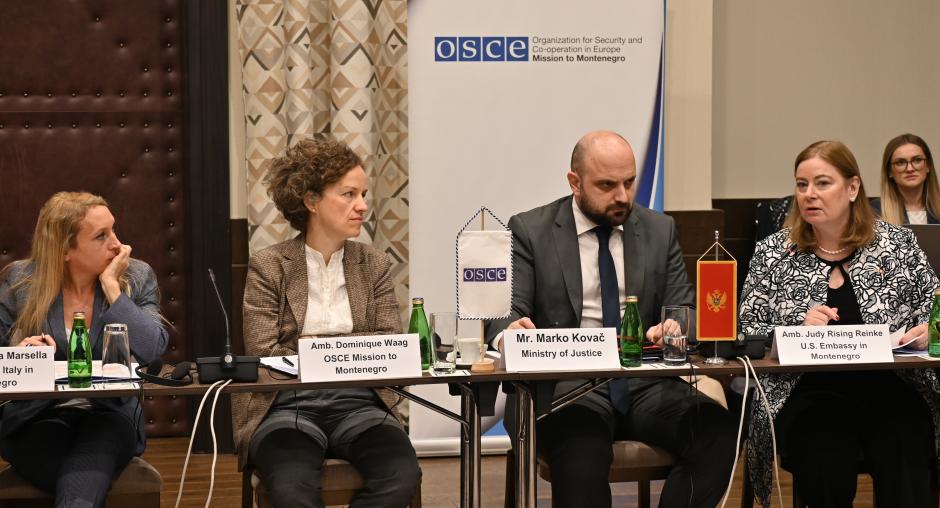OSCE organizes awareness raising event for civil society on re-use of confiscated assets in Montenegro

On 2 November, OSCE concluded the series of national workshops in Montenegro on social re-use of confiscated illicit assets. The event highlighted the key role civil society organizations play in the fight against organized crime and corruption. It also raised the awareness on the possibility to assign assets confiscated from criminal groups to civil society, contributing thus to social, cultural and socio-entrepreneurial activities and reintegrating confiscated illicit assets into communities and the legal economy.
Around 25 participants took part in the event, including representatives from six civil society organizations across the country, representatives from Ministry of Justice and the Cadastre and State Property Administration, the agency responsible for managing assets confiscated from organized crime and corruption cases.
Head of the OSCE Mission to Montenegro, Ambassador Dominique Waag opened the event stressing the support that OSCE, both the Mission in Podgorica and the Secretariat in Vienna, are providing to the authorities and civil society in Montenegro on strengthening mechanisms to improve asset recovery processes. “Asset recovery remains one of the most powerful ways to disrupt, dissolve and weaken organized crime activities and groups. It allows States and communities to take back what was illegally been taken from them. Civil society organizations are an active component in addressing and preventing transnational organized crime and corruption,” said Ambassador Waag.
US Ambassador to Montenegro, Judy Rising Reinke commended “efforts by the Ministry of Justice, in coordination with the EU, to pen important amendments to the Law on the Confiscation of Assets Gained by Criminal Activities”. “The forthcoming legislation will hopefully improve the legal framework in this area and provide a stronger basis for relevant institutions to act more effectively,” said Ambassador Reinke.
State Secretary in the Ministry of Justice, Bojan Božović, said that the opinions from the European Commission experts to the new version of the Law on Confiscation of Property Gains from Criminal Activity, sent two months ago, were very positive.
Re-use of confiscated assets for the benefit of civil society comes as the last stage of the asset recovery cycle. Redirecting the illicitly generated profit for victim re-compensation and crime prevention contributes to strengthening the culture of legality and the rule of law. During the workshop, experts from other participating States presented their re-use and social re-use models as part of the overall effort to fight organized crime and corruption. The discussions aimed to support the Government of Montenegro and civil society organizations in devising the necessary mechanisms to allocate and distribute confiscated assets, in anticipation of the implementation of an amended law on confiscation of assets gained by criminal activities.
Speaking about the Italian experience, the Ambassador of Italy to Montenegro Andreina Marsella, stated that “since 1982, almost 40.000 real estate units have been confiscated in Italy and today, almost 900 associations and cooperatives have been assigned confiscated real estate and corporate assets” “They are committed to managing them for the purpose of inclusion, cooperative promotion and social economy, youth engagement, services to people, urban regeneration, and environmental sustainability. They are the best example of the key role civil society can play in raising the awareness of negative effects of organized crime and corruption to the society, influencing the policy-making, monitoring and being part of the asset recovery process,” said Ambassador Marsella.
The Transnational Threats Department and the Office of the Co-ordinator of OSCE Economic and Environmental Activities work jointly to promote and support a whole-of-society approach in the fight against organized crime and corruption. The event was organized as part of their regional project “Strengthening the fight against transnational organized crime in South-Eastern Europe through improved regional co-operation in asset seizure, confiscation, management and re-use”, financed by the United States, Germany, Italy and United Kingdom.
